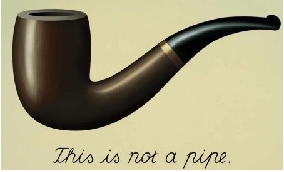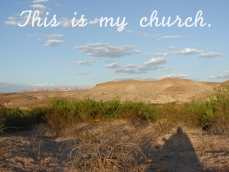paradox
by Kerry Mitchell
Perhaps it is in the nature of freedom that things can be different than they are. Considered in terms of will, one can celebrate this possibility of difference (or not) as a victory of individuals, democracy, and the market. But it does pose a problem for the nature of reality, and one that becomes increasingly acute insofar as the possibility of difference infuses the actual. The increasing complexity of society, expressed both economically and culturally through the trope of capitalism (e.g., the free exchange of money and information), manifests just such an infusion. For one who would understand the social, this historical event and trend does not just make for a finer-grained puzzle, although it does do this. It makes for greater difficulty of seeing the puzzle. Thus the increasing complexity of society has its objective dimension (increasing fragmentation) and its subjective dimension (graying of outlines). These two dimensions, further, are linked, distinct, and asymmetrical. They constitute one another, cannot be reduced to one another, and do not accord with one another.
In this way a logical, or more specifically, phenomenological problem comes to characterize a historical epoch and social condition: the secular. When the freedom to choose extends into lifestyle and worldview, the mechanism of freedom—its motives and operation—becomes radically opaque. Religion’s address of this problem, a component of multiple and varied traditions, enters into a realm of both higher stakes and paradoxical logic. I am reminded here of Niklas Luhmann’s theorization of religion, one born out of his contemplation of the secular: “In the realm of the observable (where else?), the difference between the observable and the non-observable must be made observable. [Religion] does not deal with the one or the other side of this distinction but with their form: with the distinction as such.”
Enter Spirituality
Seeing me alone one evening in Joshua Tree National Park, some campers invited me to join them around their campfire. When they asked me what I did, I told them that I studied religion. My neighbor’s eyes lit up. He made a broad, sweeping gesture toward the tumbleweed, cactus, red rock, and sand of the surrounding desert and said, “This is my church.”
The somewhat theatrical nature of the pronouncement betrayed a more-than-constative intention. It was a statement that recognized its oblique character, presenting that obliquity in full frame. I had the sense of being an audience. I am reminded here of Laurie Anderson’s description of her religious upbringing. She discussed her early encounters with the Bible whose “stories were completely amazing, about parting oceans and talking snakes. And people really seemed to believe these stories and would sit around and discuss them in the most matter of fact way. So in a way, I was introduced to a special local form of surrealism at an early age. And so there was always a question in my mind about what is actually true and what is just another art form.”
Of course there are many ways the sentence “This is my church” can make sense. But what if we interpret the sentence as absurd, something closer to “This is not a pipe”? What if we read the phrase “This is my church” when there is clearly no church in sight as an expression of surrealism of whatever special local form? What if our question is not about whether and how the statement is “actually true,” but instead about what kind of art form such a statement constitutes?


Not only did the man point to a church where there was no church. He also claimed a religion that was not a religion. He described himself as “spiritual” as opposed to “religious.” Again and of course, there are many ways that this distinction can make sense. But what if we take it as a paradox, a contradiction meant to stand unresolved? What then might it mean to have a church that is no church, a religion that is no religion?
Following Luhmann, “consider the rhetorical understanding of paradox as more fundamental than the logical one. It is simply a matter of communication that wants to use simultaneously what is incompatible…. For the communication of paradoxes, the operative effect is decisive: it causes communication to oscillate, because each position makes it necessary to assert the opposite, for which the same holds in turn.”
It’s a church. I belong here. This is my home. It’s my church. It belongs to me and I to it. It gives me myself.
It’s nature. It’s not me. It’s beyond me. It’s not my nature. It belongs to everyone and everyone belongs to it.
Flexibility? More efficient exploitation of the resources of logic? Having it all, or at least both ways? But why now and why in this way? Capitalism and greed have been around much longer than churchless cathedrals and barren fonts of life. The free flow of ideas, the ideological expression of capitalism, has never been bound by the dictates of reason. But this is different—a higher level of disjuncture; not a new page, but a page torn out of the narrative of progress and the increasing perfection of humanity through freedom. Is this the start of a new book? The destruction of an old one? Or do the two constitute a single expression?
For Andre Breton, surrealism was anything but an escape from reality. He saw it as a desire to “deepen the foundations of the real; to bring about an ever clearer and at the same time ever more passionate consciousness of the world perceived by the senses.” That world was two-sided, and not essentially but as a result of historical circumstance: “Interior reality and exterior reality being, in the present form of society, in contradiction (and in this contradiction we see the very cause of man’s unhappiness, but also the source of his movement), we have assigned ourselves the task of confronting these two realities with one another on every possible occasion, of refusing to allow the pre-eminence of the one over the other, yet not of acting on the one and on the other both at once, for that would be to suppose that they are less apart from each other than they are…, but one after the other, in a systematic manner, allowing us to observe their reciprocal attraction and interpenetration and to give this interplay of forces all the extension necessary for the trend of these two adjoining realities to become one and the same.”
When a church is a church and not a church and a desert is a desert and not a desert, then a desert can be a church and not a desert and a church a desert and not a church even as a desert is a desert and a church is a church.
How does paradox—in this case, the freedom to make a desert a church—constitute the form of contemporary society? What contradiction between interior and exterior reality thereby comes to expression? How does one understand such paradoxical unity without resolving the paradox?
A different man stood in a forest in northern California. He explained that his brother considered nature to be his church. I asked him if he would say the same thing. He said, “I’d call it my temple, just to be different.” The social references here are familial and communal: brother and church/temple. The identity of the first brother and the identity of the second (it does not matter which is which) are constructed through the paradox elaborated above: the church that is not a church and the (functionally equivalent) temple that is not a temple. But the form of society here expressed arises through the unity of the difference of the two contradictions: a church that is not a church is/is-not a temple that is not a temple—just to be different. This is how brother expresses unity with brother. The identity of each is here expressed in terms of difference (“to be different”) and community (“church,” “temple”) conceived paradoxically (church that is not a church; temple that is not a temple) and serially (“his church… my temple” and the “just” that indicates a unity limited only by the principle of difference itself).
As studied in religious studies, “spiritual but not religious” is, more often than not, studied as religious. Scholars seek the contents of collective consciousness, the communities that affirm the contents of consciousness collectively, the practices that reflect the conscious content of the community, and the codes that condition the collectiveness of the collectivity. In other words, scholars study the religion that is not a religion as a religion by taking it as a form of society. In principle I follow this instinct. But when the form of society is paradoxical, then scholarship must reflect this paradox rather than resolve it. To say that spiritual but not religious means a focus on the self rather than the collectivity and interior feeling rather than statements of belief is true enough. But to say this and leave it at this and then to proceed with yet another this-is-this and that-is-that is to resolve paradox into juxtaposition, indeed, into contiguity.
There are many concrete results that can be gained by taking paradox seriously. Breton’s activity as an artist and communist and Luhmann’s corpus of social analysis are only two examples. Paradox is productive, an expression and negotiation of social forms. For those who would understand contemporary society, this means that paradox need not be treated as an analytical threat, a glitch in cognition that must be resolved in order to grasp truth. In fact, such paradox might call for paradox in response and in analysis: a matched and juxtaposed sociological surrealism. Above all one must resist the apprehension at engaging unresolved tensions in a way that leaves them unresolved. Faced with those who would regard such tensions as fatal for analysis, and who would iterate those tensions by way of criticism or dismissal of paradoxical expressions of social reality, one may recall Breton’s call to arms: “The deplorable inspectors who pursue us even after we leave school still make their rounds of our homes and our lives. They make sure that we always call a cat a cat and, since after all we accept this to a great extent, they refrain from sending us to the galleys or the poorhouse or the penitentiary. Nevertheless, let us get rid of these officials as soon as possible.”
